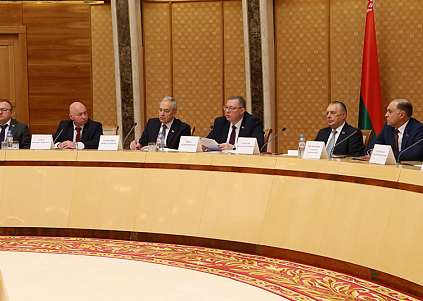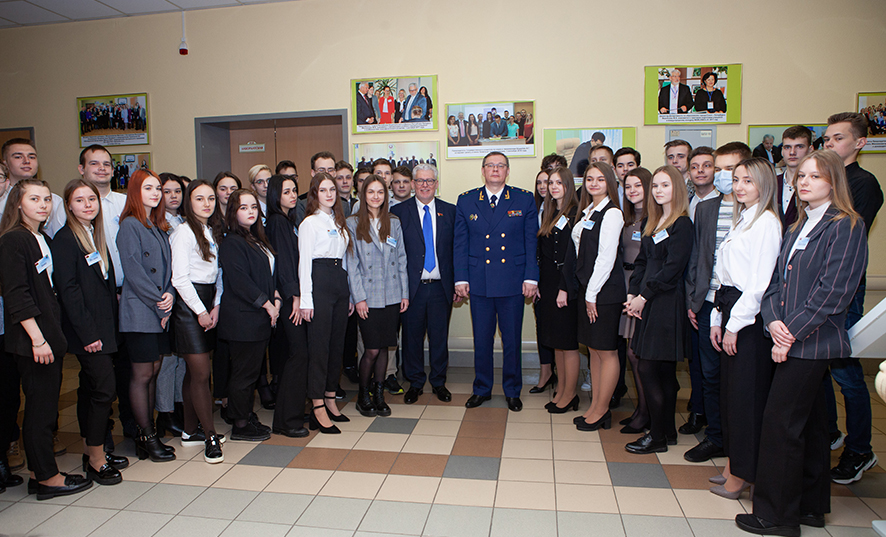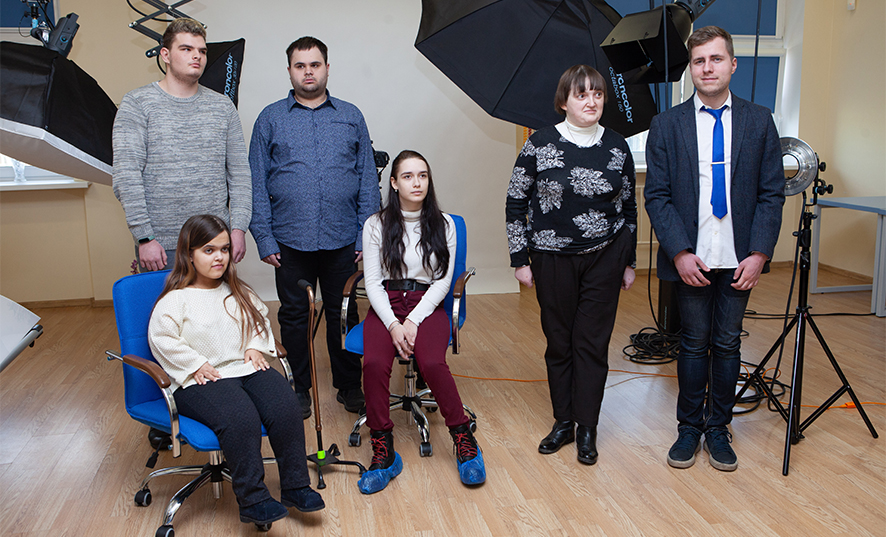The Prosecutor General of the Republic of Belarus Andrei Shved held a meeting in the format of an open dialogue with students and teaching staff of the Minsk State College of Electronics (hereinafter referred to as the College).
For reference. Unique conditions of a barrier-free environment for people with special mental or physical needs have been created and are functioning in the educational institution Minsk State College of Electronics. Among others, people with musculoskeletal, vision, and hearing disorders are educated and teach in the educational institution. Students master highly intellectual professions, including programming of mobile and robotic systems, mechatronics, and modeling. Graduates have an opportunity to continue their education in 46 specialties in 16 universities of the country. Within 5 years, teachers of this institution have published 5 textbooks on special disciplines for the higher education system.
Addressing the students with a welcoming speech, the Prosecutor General emphasized that he is set for an open and honest dialogue. “We don’t have closed topics. Ask all the questions that interest you,” Andrei Shved said.
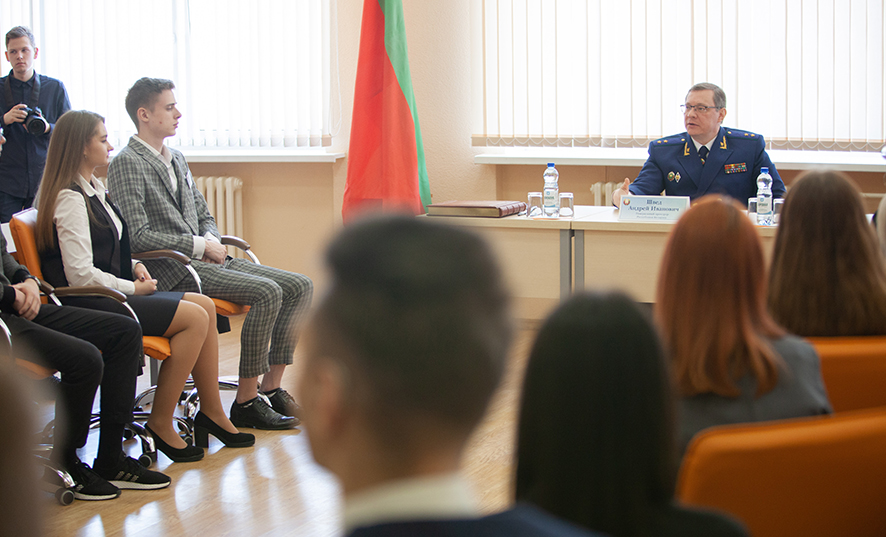
At the beginning of the conversation, he spoke about the activities of the Prosecutor’s Office in investigating the criminal case on genocide, the Prosecutor General noted that at present, the preservation of historical truth and memory is the work not only for the state system, but also for each individual citizen.
Andrei Shved emphasized that the policy of Nazi Germany from the very beginning set as its goal the total extermination of the Slavic population. That is why the extermination of people was mass and was carried out in barbaric ways. “From the very beginning, the Germans pursued a scorched-earth policy in the territory of the BSSR. In total, at least 3 million people were killed on our land at the hands of the Nazis,” Andrei Shved emphasized.
Such facts were also confirmed during the investigation of the criminal case on genocide.
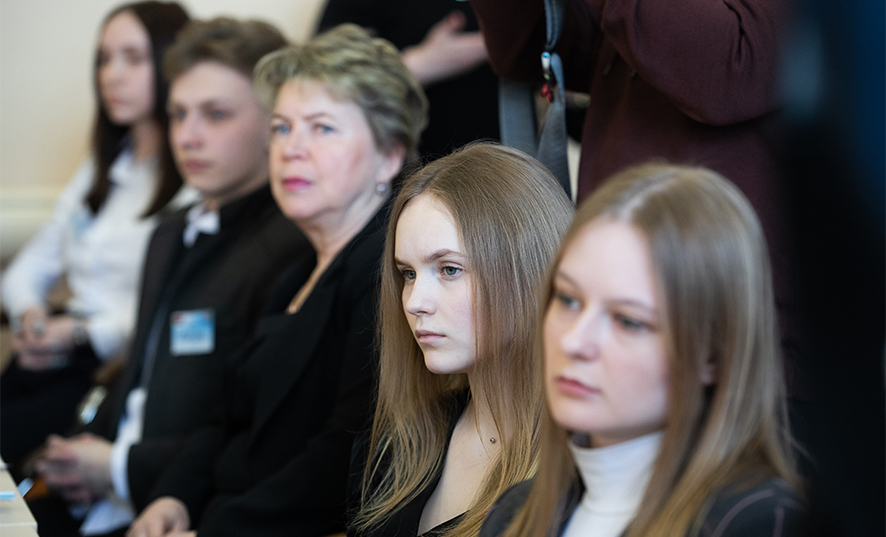
“One of the main weapons of extermination of the Belarusian people were concentration camps organized in the territory of the BSSR in large numbers and under various names,” the Prosecutor General told the college students. The largest of the concentration camps in the territory of the BSSR was called the Trostenets death camp, in which more than 546 thousand people were exterminated.
Andrei Shved told the young people about the Ozarichi concentration camp, where instead of crematoriums, cold, hunger, typhus and other diseases were used to exterminate people.
“The policy of genocide was voluntarily supported by collaborators, Polish, Ukrainian and Baltic nationalists, who sought to realize their political aspirations by encroaching on the territorial integrity of Belarus,” the Prosecutor General emphasized.

The head of the oversight agency stressed that many of the approaches that formed the basis of genocide during the war years were also used during the coup attempt in August 2020.
“Just like during the war, when white-red-white symbolics was used to unite the traitors of the Belarusian people, quite recently extremist actions and acts of terrorism were committed under it in Belarus. The organizers of the mass riots adopted the methods of Nazi Germany, including the collection of information about the personal data of representatives of the Belarusian authorities and administration bodies, their relatives. At the same time, the participants in the riots, as well as Nazi criminals, were promised release from liability,” the Prosecutor General noted.
Andrei Shved urged young people to always be critical of any information. “The information war and technologies against our State have been developed for decades and are aimed primarily at depriving people of the ability of critical thinking. Always compare any information with real events, focus on official sources of information, because verified information is published there, and specific people are responsible for the reliability of the information, - Andrei Shved said. - Individual States tell us that we live wrong. But look what happened to the countries they came to: a hotbed of terrorism, hunger, lack of education.”
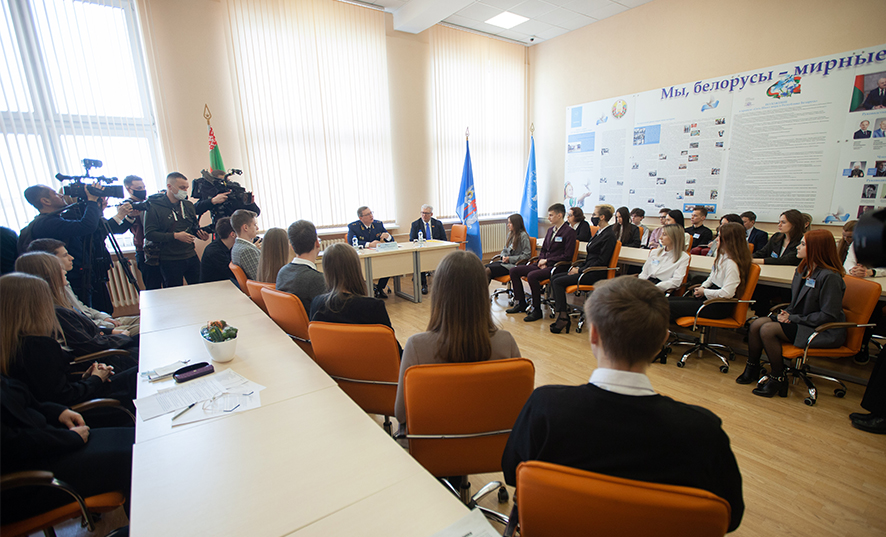
A lot of different questions were received from those present at the meeting. The students were interested not only in the details of the investigation of the criminal case on genocide, but also in personal topics.
One of those present asked the Prosecutor General what evidence prove, in his opinion, cruel and monstrous atrocities of the Nazis during the war years.
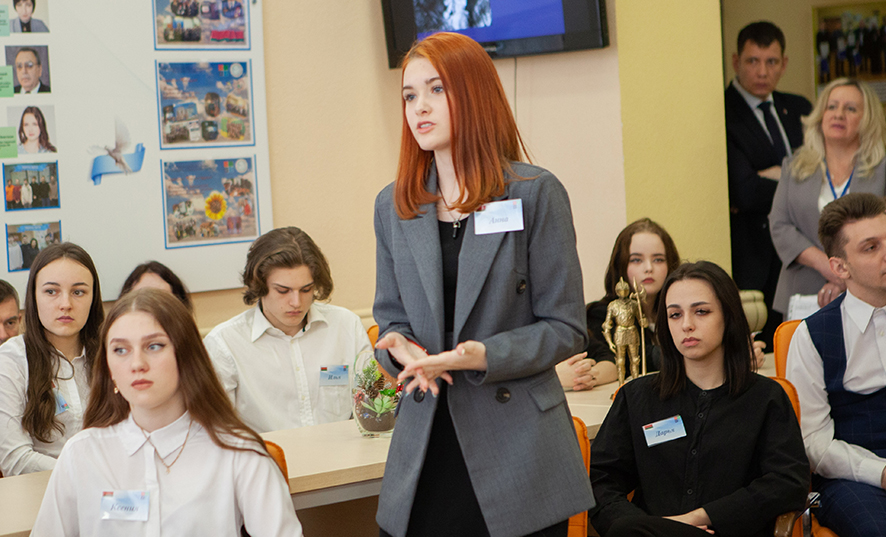
“First of all, these are excavations of places of mass burial. Even photographs cannot convey what a person present in this place feels. Secondly, of course, the testimony of living witnesses. To date, we have interviewed over 13,500 citizens, many of whom saw what was happening with their own eyes. We record them so that everyone can listen to their words. And, of course, archival documents and expert opinions. We get undeniable evidence that cannot be refuted either now or in the future,” Andrei Shved replied.
Answering the question about what is unacceptable for the Prosecutor General personally, Andrei Shved talked unambiguously: “There is nothing worse than betrayal. The price of betrayal has always been, is and will be colossal. There are many examples in modern times when betrayal turned into a tragedy for millions of people. If in August 2020 someone betrayed in a serious way, it would be very difficult and scary for all of us.”
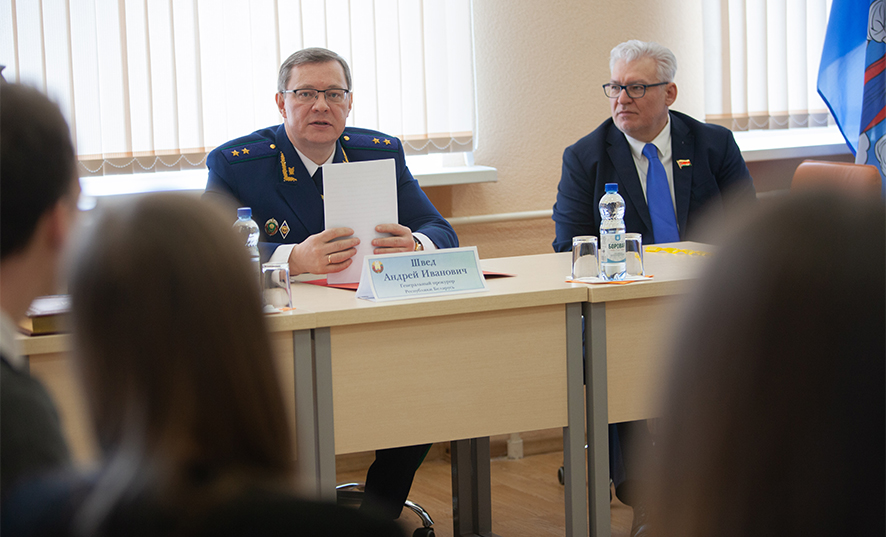
The Prosecutor General also shared stories from his personal life: he told the students about how his family suffered from the Nazis during the war years. He also talked about how he came to the profession of a lawyer. The Prosecutor General expressed his opinion about the most important personality trait for success: “The main thing is hard work. Nothing, believe me, in this life comes easy. Neither at work nor in personal life, because the family is also a lot of work. Even if one lacks abilities, thanks to perseverance and work, a result is achieved.”
The meeting participants were concerned about the question of how to punish the Nazis for their crimes. “Undoubtedly, we will seek recognition of the genocide of the population of the BSSR at the international level. But the main punishment for them is your awareness of their crimes. We must tell the public everything about their atrocities uncensored,” Andrei Shved said.
As part of the event, Andrei Shved got acquainted with the material and technical equipment of the college.
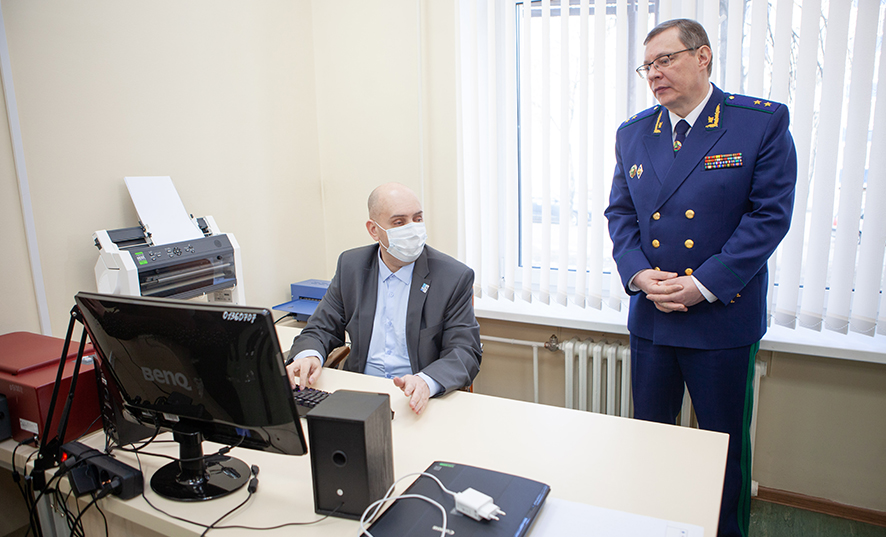
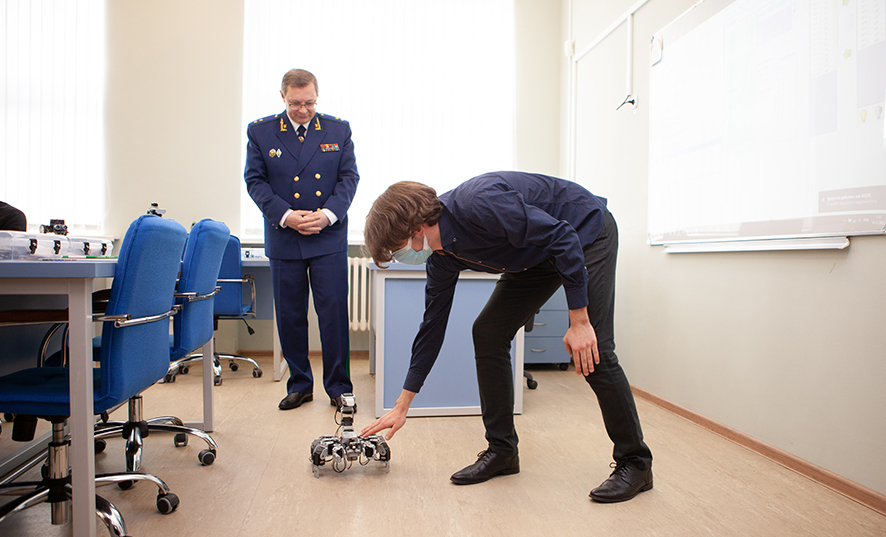
In particular, the functionality of the resource center for inclusive education was demonstrated, which houses the laboratories of applied photography, industrial electronics and microelectronics, mobile computing systems, microprocessor technology, and others
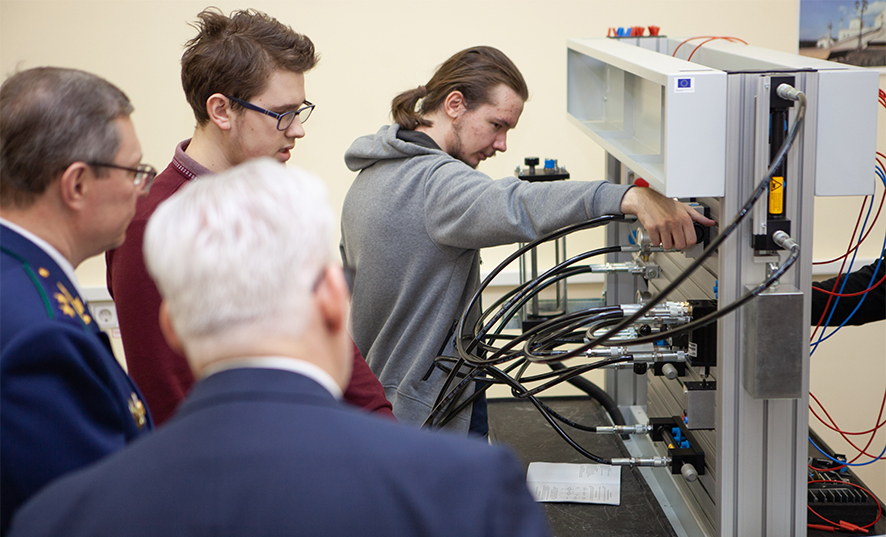
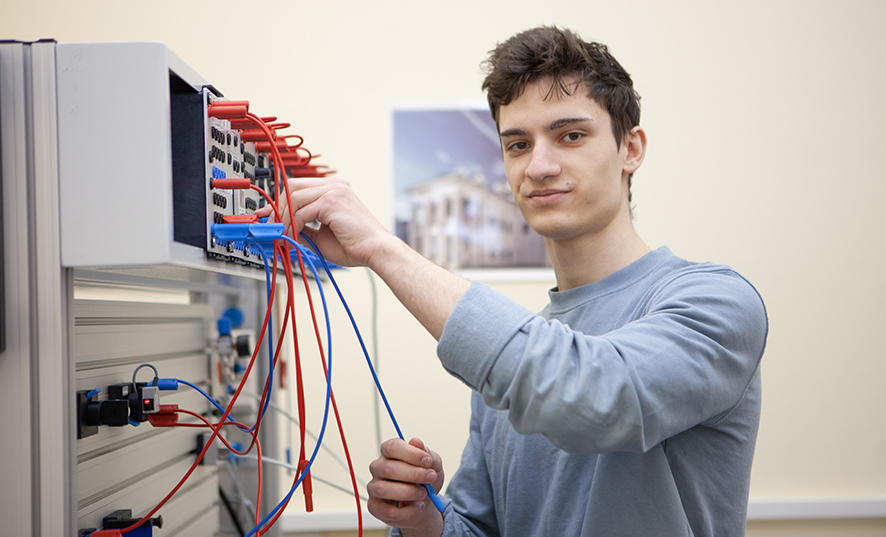
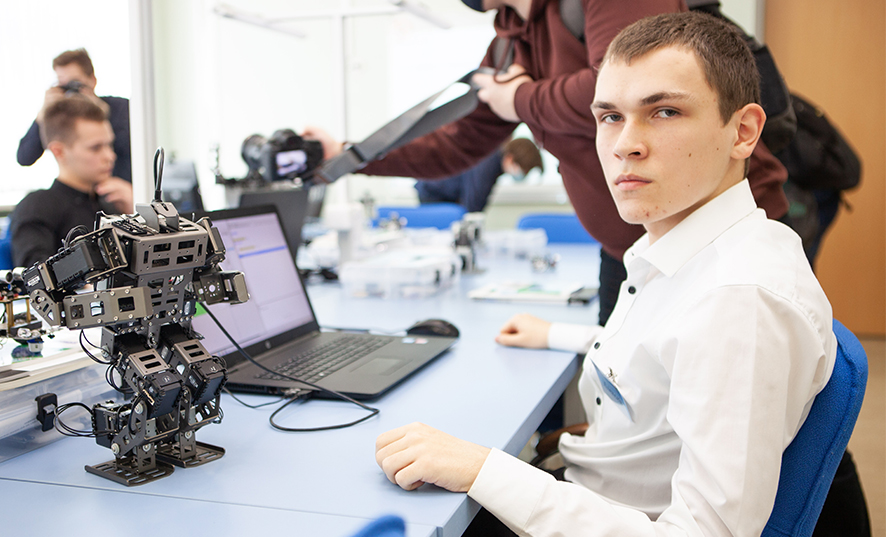
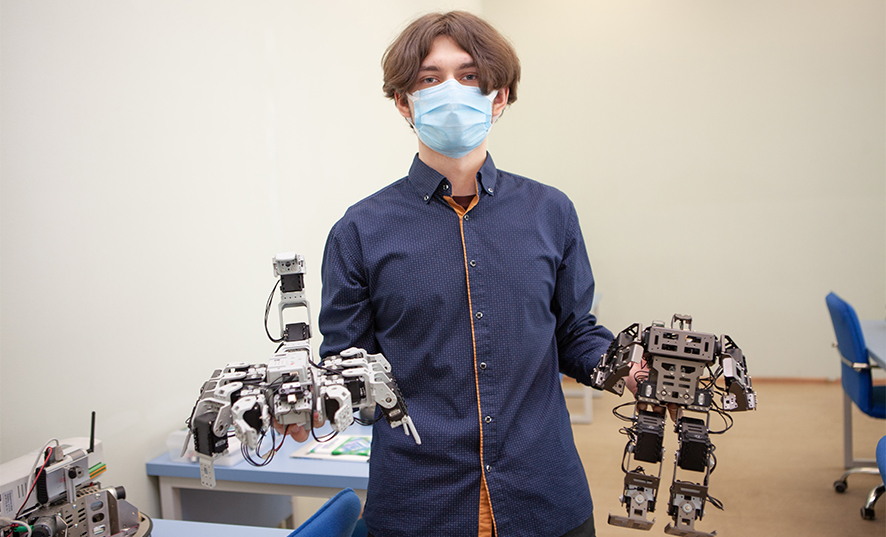
“We want to show by example what the system of secondary specialized education presents today and how we work and create equal opportunities for special children. You will see how we use world experience when equals teach equals. The teachers of our students are people who themselves have special features. For example, Aleksander Severin is visually challenged, but he has three higher technical education degrees, teaches special disciplines in programming. He is preparing to enter graduate school. This is a person about whom one can write “a story about a real person,” said the director of the college, Georgiy Kozel.
The Prosecutor General of the Republic of Belarus left an entry in the book for honored guests of the college.
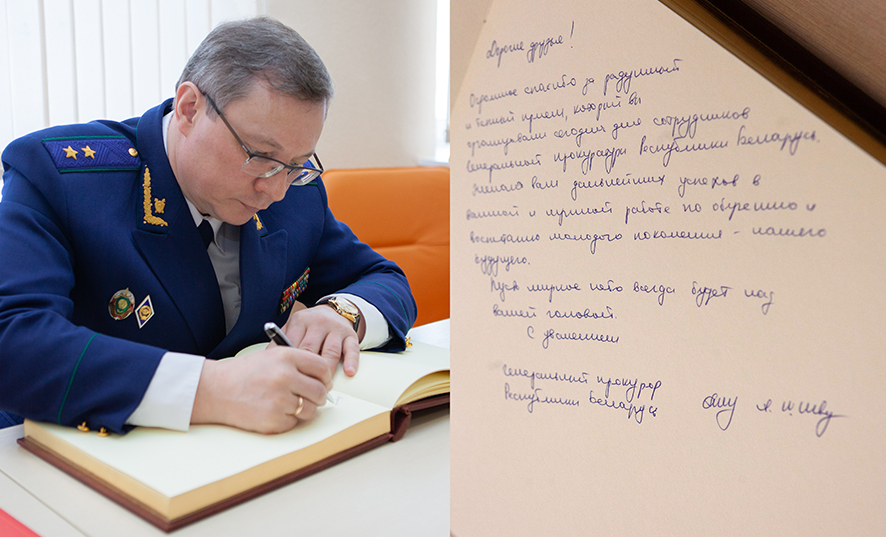
As part of the event, Andrei Shved talked to representatives of mass media.
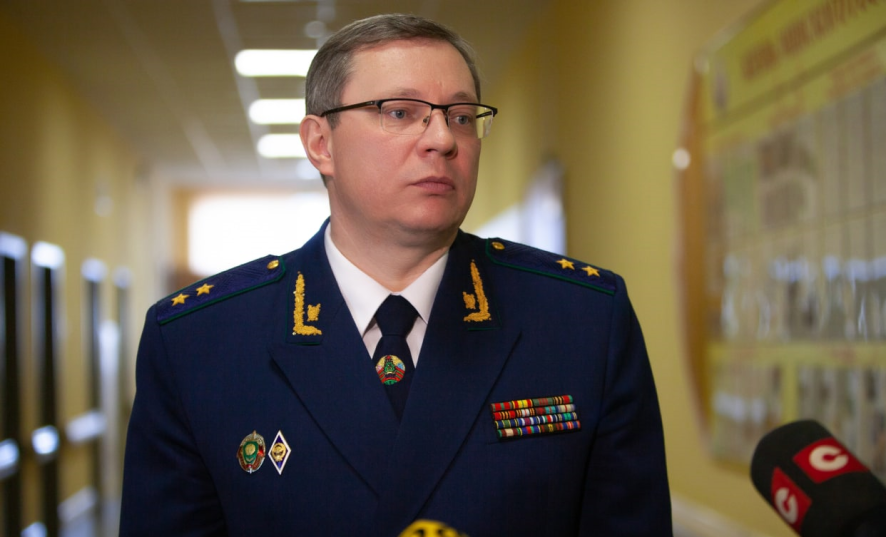
Photo: Prosecutor General’s Office, Minsk News
Department for Interaction
with Mass Media and Editorial Work
of the Prosecutor General’s Office
Other news
Main events
